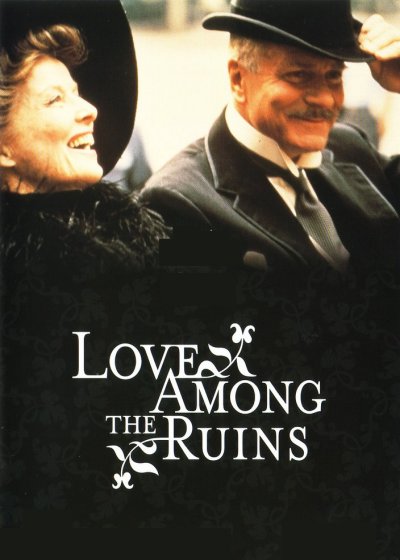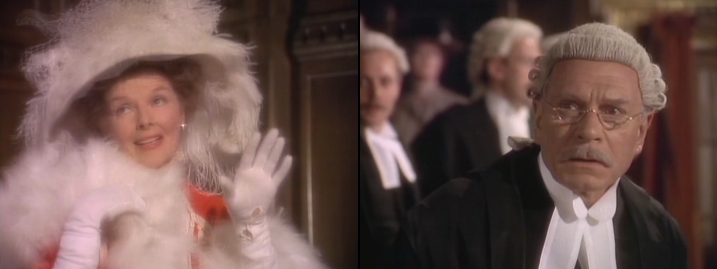A Year with Kate: Love Among The Ruins (1975)
 Wednesday, October 8, 2014 at 3:00PM
Wednesday, October 8, 2014 at 3:00PM Episode 41 of 52: In which Katharine Hepburn does a TV movie with Laurence Olivier and George Cukor, which might have been disappointing if it wasn't so good.
 Whew! What a nice change of pace this breezy little comedy is after so many dramas. Don't get me wrong, I love Great Actresses performing Great Roles in Great Films, but sometimes you just want to curl up on the couch with a glass of wine and laugh with your friend Katie, y'know? It's been 2 months since our last comedy (or less, depending on whether you laugh as hard as I do during The Lion in Winter), and I for one was cautiously excited to see Kate return to comedic form in Love Among The Ruins.
Whew! What a nice change of pace this breezy little comedy is after so many dramas. Don't get me wrong, I love Great Actresses performing Great Roles in Great Films, but sometimes you just want to curl up on the couch with a glass of wine and laugh with your friend Katie, y'know? It's been 2 months since our last comedy (or less, depending on whether you laugh as hard as I do during The Lion in Winter), and I for one was cautiously excited to see Kate return to comedic form in Love Among The Ruins.
I say "cautiously excited" because even though so many of you pointed out how good this movie is, its existence a TV movie (albeit an Emmy Award-winning one) depressed me. The fact that three giants of the Studio Era - George Cukor, Katharine Hepburn, and Sir Laurence Olivier - were forced to make their triumphant reunion on the small screen, when only a decade before they had commanded CinemaScope and roadshow releases, proved to me once and for all that by 1975, Old Hollywood was dead. And while I by no means begrudge the birth of New Hollywood and the waves of startling creativity that came from the auteurs of 70s counter culture, I nonetheless mourn the way we did (do?) treat our aging giants. So it was with bittersweet feelings that I turned on the television.
 Kate delivering some quality sass to dumbstruck Olivier
Kate delivering some quality sass to dumbstruck Olivier
It turns out that there is such thing as worrying too much.








